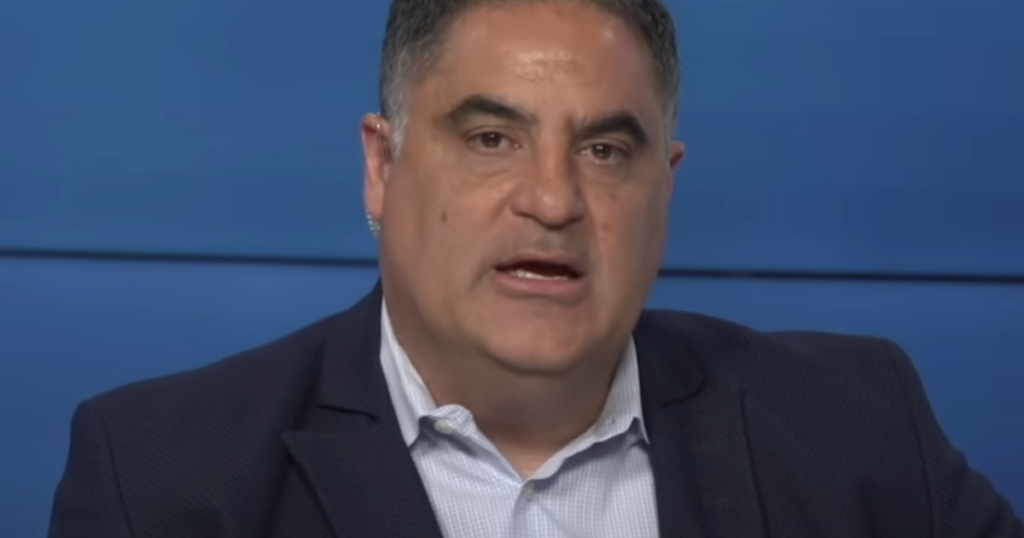In a recent controversy involving Donald Trump, far-left commentator Cenk Uygur from the Young Turks defended the former president’s remarks about Liz Cheney, which led to significant backlash from liberal media. During a conversation with Tucker Carlson, Trump labeled Cheney, the daughter of former Vice President Dick Cheney, as a “radical war hawk” who would not fight in the conflicts she supports. He provocatively asked listeners to imagine Cheney facing an actual combat situation, implying that those advocating for war often do so from a safe distance without understanding the realities of battle. Critics quickly misconstrued Trump’s comments, claiming he issued a threat against Cheney, which fueled outrage across various media platforms.
Uygur took to social media to challenge the narrative surrounding Trump’s remarks, asserting that allegations of him calling for Cheney’s execution were baseless. He emphasized that Trump was merely highlighting Cheney’s status as a “chickenhawk” — someone who advocates for military action without being willing to engage in it personally. However, Uygur cautioned that while he disagreed with the media’s characterization of Trump’s statements, the former president’s choice of words was still irresponsible, particularly in an environment where political violence is a pressing concern. This suggests a nuance in Uygur’s defense; while he felt the media was misleading in their coverage, he acknowledged the risk of Trump’s rhetorical style.
Uygur’s critique drew attention to a broader phenomenon in media responsiveness to Trump’s statements. He indicated that this incident exemplifies how Trump’s outrageous remarks, when interpreted misleadingly, can divert attention from the original arguments being made. He argued that the press’s eagerness to sensationalize Trump’s comments can lead to a loss of credibility, making it more challenging for the public to understand the underlying issues at hand. This situation raises critical questions about the ethics of journalism and the responsibility of media outlets in their reporting, especially regarding politically charged statements.
Similarly, Vox’s Zack Beauchamp echoed Uygur’s defense, asserting that Trump did not threaten Cheney but instead used language typical of critiques leveled against her in the past. He pointed out the irony of the criticism against Trump, as it came from a context in which the term “chickenhawk” had already been applied to Cheney by liberal commentators. Beauchamp’s analysis invited readers to consider the importance of context in interpreting political discourse, suggesting that the uproar over Trump’s comments may have overshadowed significant criticisms of Cheney’s foreign policy positions and perceptions.
During a rally in Michigan, Trump reiterated his criticisms of Cheney, highlighting her comfortable lifestyle compared to the lives impacted by the wars she supports. He pointed out that for Cheney and others like her, advocating for military action is detached from the realities faced by families who bear the burden of these conflicts. Trump continued to assert that Cheney lacks the courage to fight, challenging her to join him in active military engagement. This type of rhetoric has been typical for Trump, as he often positions himself as a figure of action against those he perceives as hypocrites in political matters.
As the political landscape evolves, the reactions to Trump’s remarks reflect larger tensions in American politics, particularly around issues of war and foreign policy. Trump’s comments delineate a divide, not just between political figures but also within the media’s portrayal of such figures. By fostering a dialogue on war, political accountability, and the divergent realities experienced by policymakers and citizens, this incident underscores the complex interplay between rhetoric, media interpretation, and public perception in shaping political narratives today.

